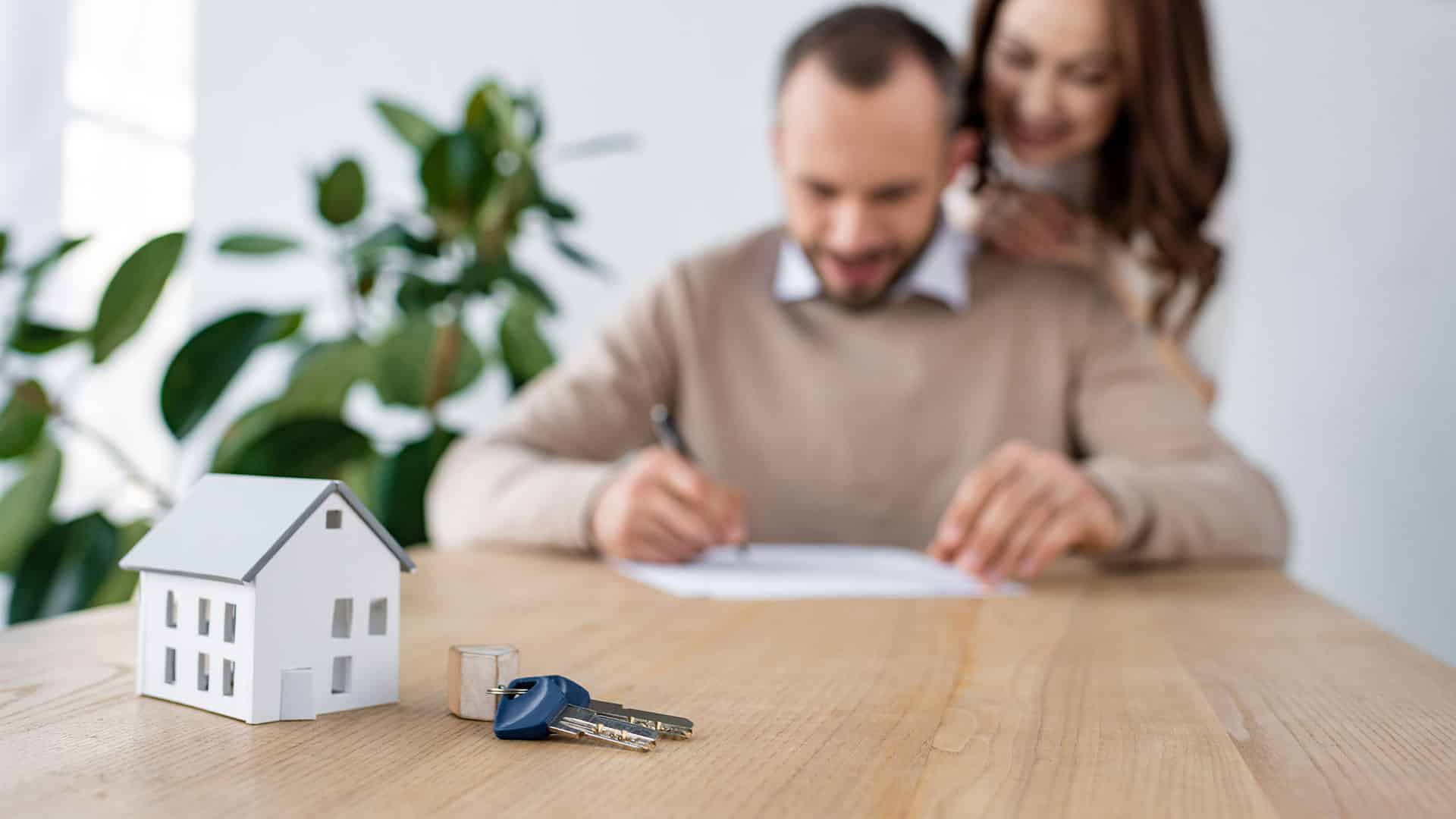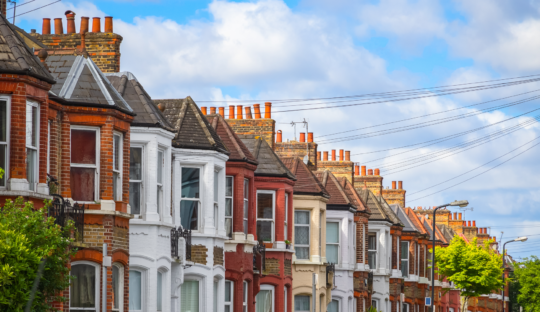In this article
If you are a first time buyer looking to find your place on the property ladder, you’ll likely fall into one of two categories; Someone who knows a little bit about buying a home from either friends, family or research, or someone who isn’t sure about the process altogether.
This is where we come in, as it’s our job to offer a free education to everyone looking to learn more ahead of enquiring for a mortgage. As a first time buyer who falls into the latter category, there are likely various questions you are looking for answers to.
Here we have cherry picked the most frequently asked questions from first time buyers, in order to educate you on what you’ll need ahead of getting in touch with a mortgage advisor.
Getting Prepared For a Mortgage
Explained in 1 min 9 seconds
Find more videos like this on MoneymanTV
Can I get a mortgage?
The first question you’re probably going to have, over everything else, is whether or not you can even get a mortgage in the first place. The answer to this varies on a case by case basis.
As a general rule of thumb, so long as you meet the criteria for a mortgage (something an advisor will go over with you), can afford to make the monthly payments (a mortgage advisor will check this too, prior to an full application), and have a good credit history, you’re in with a good chance of being accepted for a mortgage.
How do I get a mortgage?
Once that question has been answered, your mind will likely wander towards wondering how to get a mortgage. This once again varies per person. If you have a good enough knowledge ahead of time, it is entirely possible to find your own mortgage online these days.
The key is matching against the right criteria first time, so that you don’t damage your credit file. This is something that the majority of first time buyers aren’t going to know how to do, so it is recommended that you speak with a trusted mortgage broker.
What is a mortgage broker and do I need one?
Naturally, as you research and learn more, you’re probably going to want to know what a mortgage broker is and whether or not you need one. For context, a mortgage broker (like UK Moneyman) is a company who will be able to mediate between various mortgage lenders.
They won’t be the company you’re borrowing from (that is the mortgage lender), as their job instead will be to search through all of the deals available, matching you up to the correct criteria. They will deal with all the ‘tedious’ parts, allowing you to stress a lot less on the way to being granted a mortgage.
As touched upon, a mortgage broker is ideal for people who aren’t sure of how to find their own mortgage. At UK Moneyman, we have a vast panel of mortgage lenders, featuring high street banks, building societies and pure mortgage lenders alike.
Going directly to a bank often leaves you waiting for an appointment and only one choice of deals. With a mortgage broker, you’ll get an appointment a lot sooner (we allow you to choose your own timeslot!) and a much wider variety of deals from different sources, as opposed to one.
We have a long history of helping first time buyers with first time buyer mortgages, keeping them constantly informed of what is going on and ensuring the process goes as smoothly as possible. Our reviews from other first time buyers show how invaluable our service truly is.
Speak to an Advisor – It’s Free!
Schedule a free callback from one of our experts today.
- All situations considered
- Transparent and honest mortgage advice
- We search 1000s of purchase and remortgage deals
Our customers rate us 4.9/5
What should I do to prepare for a mortgage?
Once you have an understanding of the above points, you’re going to want to make an action plan of how you’re going to achieve this. For many first time buyers, especially younger applicants, the main issue tends to be that whilst they don’t have a bad credit score, they don’t necessarily have much of a credit score.
The easiest of all and arguably one of the most effective ways to build up or improve your credit score, is to register on the electoral roll for your current address. You can do this even if you’re living with friends, in student housing or living with parents.
You will also want to make sure you make any regular payments on time. Phone contracts, car payments, internet bills, any credit card bills, things like that. It’s always handy to set up direct debits so you know your payments will definitely go out on time.
Speaking of credit cards, you’ll want to make sure they’re paid off in full every month. Any cards that you don’t use, you should cancel. If you don’t have any credit cards, it’s worth having one at the lowest limit you can.
With a credit card, you don’t need to use the full amount, many use them for essential monthly shopping. In any case, paying it off in full each month will work in your favour. Additionally, on the topic of credit score, you should get an up-to-date credit report, and make sure there are no errors present.
Outside of improving your credit score, there are other things you can do to prepare for a mortgage;
- Make sure you are in steady employment, as this will impact your income.
- Save up a sufficient deposit or look to get a gifted deposit from a family member, as this will open you up to better rates.
- Arrange paperwork ahead of time, so that when a member of a mortgage advice team asks for your documents, you have it all on hand ready.
- Avoid applying for anything yourself if you don’t know what you’re doing. Too many failed applications can result in a damaged credit score and may stop you from getting a mortgage altogether.
- Stay out of your overdraft! This can put lenders off if they see you’ve been going into your overdraft regularly.
What documents do I need to apply for a mortgage?
When it comes to your mortgage application, you will need to provide a mortgage broker with a selection of documents in order to proceed. These documents are as follows;
Proof of ID – Passport or driver’s license. If you use your passport for proof of ID, you will need separate documentation for proof of address.
Proof of Address – Passport, utility bill, bank statement or credit card bill.
(PAYE) Proof of Income – Last 3 months payslips, potentially a P60 if you are in new employment.
(Self Employed) Proof of Income – Tax Calculations and Tax Year Overview. Sometimes an Accountants Certificate might be needed.
How much deposit will I need to apply for a mortgage?
The amount of deposit you will need to take out a mortgage will be a minimum of 5% deposit, giving you a 95% mortgage. If you have a poor credit history, you will need to have a much higher deposit, perhaps between 15-20% of the purchase price.
Whilst the minimum deposit amount is perfectly acceptable, it’s recommended that you save up as much deposit as you possibly can. The reason for this, is because the more deposit you put down, the less you’ll be borrowing from the lender. This in turn opens you up to better interest rates, due to the reduced risk.
If you’re finding it difficult to save up for a deposit, there are a few helpful tips we can give. The first of those is to ask a family member for a potential gifted deposit. Whether this is the full amount or a deposit top-up, this can be a lifeline for first time buyers.
Many don’t even realise they can ask their parents for help, but we find that most are more than willing to help their children get onto the property ladder. This extends to both adopted parents, as well as legal guardians.
The important thing to remember with gifted deposits, are that they do have to be a gift, not a loan. The donor will have to sign a declaration document to acknowledge this, as well as provide an audit for where the gift as come from.
Are there any schemes that can help me purchase a home?
As mentioned above, sometimes a first time buyer might find it difficult to find their footing on the property ladder. There are a variety of schemes available to eligible first time buyers. These include;
- Shared Ownership – A third party, usually a local authority, buys part of your home. You typically buy between 25-75% of the property, though some lenders allow lower. You pay the third party back a monthly rent. Again, a mortgage broker can help determine eligibility.
- Right to Buy – Buy your home from your local council or housing association. Must be a public sector renter for more than 3 years (doesn’t have to be in a row). It must be your main home. Speak to your local authority to determine eligibility.
- Lifetime ISA – Is a savings account to purchase a home. You must be over the age of 18 but under the age of 40. You can deposit up to £4,000 a year, until you’re 50. The government will top up your savings by 25% (maximum of £1,000) per year.
What are the costs of buying a home?
Many first time buyers come to us also wanting to know what costs are going to be involved in buying a home.
If you’ve done any research online, you may see something being mentioned called Stamp Duty. The good news is that if this is you’re a first time buyer in England, you will be exempt from this tax on any properties worth less than £300,000.
In terms of costs you can expect to pay, there will obviously be your mortgage payments. They will be determined based on the mortgage applied for, your income, your term length and the amount you’re looking to borrow.
Additionally to that, there is of course the deposit, which we covered above. During your process, you’ll need to hire a surveyor to check the property prior to purchase, which is an additional cost. You may also have a valuation fee, which will cover the lender checking the property’s worth.
On top of this, you will typically require the services of a solicitor to carry out the legal work of buying a home and completing the transfer of funds. As a mortgage broker, there may also be a fee for our service. The costs of these can vary.
Depending on the mortgage product you go with, there may also be product fees. Also, a mortgage advisor will want to discuss possible insurances with you, which will be additional costs. These insurances are recommended as a means of backing up your income against unfortunate events that may impact your ability to maintain your mortgage payments.
Last of all, the only major costs included to bear in mind, will be the general running costs of the property. Gas, electricity, water, internet, things like that. There are plenty of choices online for providers of these, so it’s always worth doing some research.
Trusted Mortgage Advice for First Time Buyers
Covered here are some of the most important things to bear in mind if you are a first time buyer looking at what you need to get a mortgage.
If you need any further mortgage advice or would like to get started on your journey to becoming a homebuyer, book your free mortgage appointment today using our online booking feature. A trusted mortgage advisor will run through your case and recommend the best mortgage for you and your circumstances.
Let us guide you through the mortgage process and allow you to worry less – Get in touch with an expert mortgage broker and reap the rewards of over two decades of mortgage experience.







